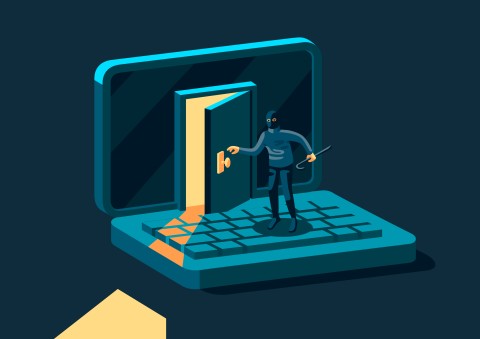Technology
How to protect yourself and your devices

The arrival of the internet heralded a new dawn in connectivity between humans.
However, not everyone uses it for good, and every day hackers and scammers become more and more sophisticated.
So to help you protect both yourself and your devices, whether a phone or a fridge, we’ve gathered a range of experts to advise on keeping safe in the 21st century.
What are some of the best ways to protect myself from online threats?
David McClelland says: Use different passwords for each online account. When hackers break into an account, they often perform a ‘parallel attack’, trying the same login on other accounts.
The most secure passwords contain a mix of numbers, letters and special characters. Complicated passwords may be secure but they are difficult to remember. So get a password manager: these digital vault apps remember your passwords so you don’t have to, integrating with your devices, apps and web browsers to complete login fields.
One of the most effective ways of keeping bad guys at bay is to enable multi-factor authentication (MFA) on services that support it. With MFA you provide another security factor to prove your identity – a one-time passcode sent to your mobile as an SMS or via an app.
What are some of the biggest and most common threats to online security that are tricking users?
David McClelland says: The FBI’s annual Internet Crime Report makes for stark reading: at almost $2.4billion (£2.1billion), the most lucrative type of attack for online criminals last year was ‘email account compromise’. Cyber criminals know how reliant we are on email and are adept at intercepting and monetizing our messages.
Think of a solicitor requesting funds for a house purchase, getting in touch to say their bank account details have changed. By breaking into email accounts or spoofing emails, criminals can cash in by redirecting payments to their accounts.
Email compromise may be the most lucrative online crime but it is not the most common. That accolade goes to phishing. How many of us have received emails as if from a delivery company, imploring us to visit a link to prevent our parcel being returned?
By following that link, victims can be taken to fake websites that harvest payment details and personal information to commit identity theft. Sites can even contain malware, enabling hackers to spy on victims’ devices.
How do I protect my smartphone from hackers and potential security threats?
Basil Kronfli says: First, make sure your smartphone apps and operating system are up to date. Apple and Google frequently send out updates to keep hackers out. If your phone is older than three or four years, you might not be getting updates, so it could be time to upgrade.
Don’t use the same password or passcode for all accounts and apps. Antivirus software such as AVG and Norton 360 adds extra protection, and some has a virtual private network to keep your phone’s digital fingerprint hidden when online.
Be weary of messages from unknown numbers. Don’t click on website links unless you’re sure they’re legitimate. A smart move would be to agree on a password to help you identify family members.
Never transfer money at the request of a message unless you can verify the recipient’s identity.
How do I protect my smart home devices from potential threats and hacking?
Esat Dedezade says: While we’re a long way off from toasters being hacked to pop car keys out of windows, it’s still worth taking simple steps to protect your smart home devices. The first is easy: change your default router password. Something like your favourite song lyric (eg withalittlebitofluckwecanmakeitthroughtonight) is not only longer and more secure, but easy to remember. After that, log in to your router’s settings and change the default password for that too. This ensures that no one else can mess around with your router, even if they’re using your wi-fi.
Most routers have a firewall – make sure it’s on. Newer ones have a more robust security protocol (look for WPA3). If you’re lucky, you’ll have the option to create a guest network to use exclusively for your smart home devices.
Lastly, it’s worth updating your router, devices and apps with the latest software because they often contain important security updates.
What are the biggest online gaming risks and how should I avoid them?
Guy Cocker says: If you’re a parent or guardian, use the parental controls on consoles to set restrictions and make sure kids can’t play online games that would be inappropriate.
If you allow your child to play online, be aware they can voice or text chat with millions of players around the world. This can be difficult to police so maintain an honest dialogue with them and make sure they know how to use the tools to report bullying or other inappropriate behaviour.
Cybercriminals also use online platforms for identity theft, phishing and malware attacks, which could take the form of messages sent through Xbox Live or the gaming chat app Discord. Scams are usually easy to spot for adults but children can be more vulnerable so educate your kids about what to look out for.
For those who game on mobile, tablet or PC, spyware and viruses can be a problem. On Android devices, download games only from the official Google Play rather than unofficial sources that could be compromised. On PC, make sure you keep Windows up to date and that the system’s pre-installed Virus and Threat Detection is turned on.
Game services have been hacked, such as PlayStation Network in 2011. Use a password manager such as Bitwarden – if one of your passwords is compromised, hackers can’t also access your banking or shopping accounts. Enable Two-Factor Authentication where you can.
Meet the tech experts
Basil Kronfli has written for Stuff, TechRadar and Wired, testing wellness, kitchen and mobile gadgets. He’s big on animals, baking and tech for good.
Guy Cocker has edited GameSpot UK, Stuff Magazine and was a consultant on the BBC’s Make It Digital series
David McClelland’s mission is to make the web a safer place. He writes and talks about scams and hacks, as well as photography and smartphones.
Esat Dedezade has written for Stuff and Microsoft, loves smartphones and gaming, and is the proud owner of the most misspelled name in the biz.














